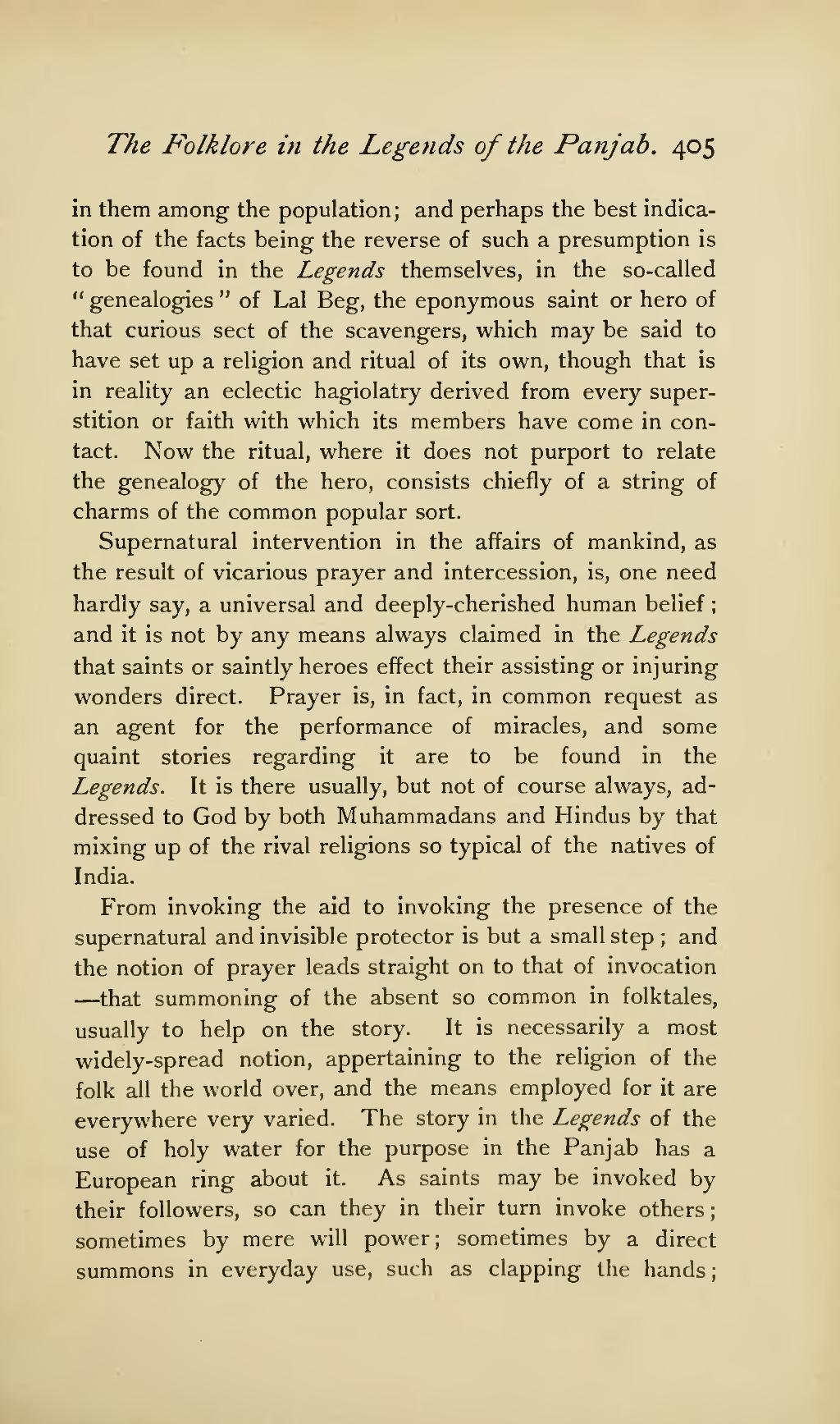The Folklore in the Legends of the Punjab. 405
in them among the population; and perhaps the best indica- tion of the facts being the reverse of such a presumption is to be found in the Legends themselves, in the so-called " genealogies " of Lai Beg, the eponymous saint or hero of that curious sect of the scavengers, which may be said to have set up a religion and ritual of its own, though that is in reality an eclectic hagiolatry derived from every super- stition or faith with which its members have come in con- tact. Now the ritual, where it does not purport to relate the genealogy of the hero, consists chiefly of a string of charms of the common popular sort.
Supernatural intervention in the affairs of mankind, as the result of vicarious prayer and intercession, is, one need hardly say, a universal and deeply-cherished human belief ; and it is not by any means always claimed in the Legends that saints or saintly heroes effect their assisting or injuring wonders direct. Prayer is, in fact, in common request as an agent for the performance of miracles, and some quaint stories regarding it are to be found in the Legends. It is there usually, but not of course always, ad- dressed to God by both Muhammadans and Hindus by that mixing up of the rival religions so typical of the natives of India.
From invoking the aid to invoking the presence of the supernatural and invisible protector is but a small step ; and the notion of prayer leads straight on to that of invocation — that summoning of the absent so common in folktales, usually to help on the story. It is necessarily a most widely-spread notion, appertaining to the religion of the folk all the world over, and the means employed for it are everywhere very varied. The story in the Legends of the use of holy water for the purpose in the Pan jab has a European ring about it. As saints may be invoked by their followers, so can they in their turn invoke others ; sometimes by mere will power; sometimes by a direct summons in everyday use, such as clapping the hands ;
